Description
CHAPTER ONE
INTRODUCTION
1.1 Background to the Study
According to Pintrich & Schunk (2002), motivation is the process whereby goal-directed activity is instigated and sustained. At primary school level pupils need guidance and counseling, motivation and supervision to enhance their performance and to compete with their peers. Head teachers and teachers‟ motivation has strong effect on the educational attainments of pupils. Motivation has strong effect on educational attainments of the students and helps shape their further improvement.
According to Higbee (1996) motivation plays a very important role in the process of learning. He explains that there are two types of motivation: intrinsic motivation and extrinsic motivation. In intrinsic motivation students participate in different activities for enjoyment. In extrinsic motivation students participate in different activity only to receive a reward or to avoid punishment. These include gifts that one receives after obtaining good grades. Motivation to learn referred to the value, and benefits of academic tasks to the learner regardless of whether or not the tasks were intrinsically interesting.
Motivation involves a constellation of beliefs, perceptions, values, interests, and actions that are all closely related. As a result, various approaches to motivation can focus on cognitive behaviors (such as monitoring and strategy use), non-cognitive aspects (such as perceptions, beliefs, and attitudes), or both. Gottfried (1990) defines academic motivation as enjoyment of school learning characterized by a mastery orientation; curiosity; persistence; taskendogeny; and the learning of challenging, difficult, and novel tasks. On the other hand, Turner (1995) considers motivation to be synonymous with cognitive engagement, which he defines as voluntary uses of high-level selfregulated learning strategies, such as paying attention, connection, planning, and monitoring. The notion of intrinsic motivation is closely related to intrinsic value. Intrinsic motivation refers to motivation that is animated by personal enjoyment, interest, or pleasure, and is usually contrasted with extrinsic motivation, which is manipulated by reinforcement contingencies (Guay, 2010). Typically, manipulation of extrinsic motivation is effected by the provision of rewards, which can be either tangible like money, grades and privileges or intangible such as praise.
However, extrinsic motivation can come about by other means. For example, self- determination theory distinguishes several different types of regulatory mechanisms that can act as reinforcement. External regulation corresponds to the lowest level of self-determination, where behavior is motivated by a desire for reward or punishment avoidance. Educators typically consider intrinsic motivation to be more desirable than extrinsic motivation, and some research suggests that the learning outcomes of intrinsic motivation are better than those obtained under extrinsic motivation (Ryan, Connell, & Plant, 1990). According to Goldberg, Gallimore, Reese Garnier (2001), pupils with intrinsic motivation in academic would have higher self-perceptions of competence in academics and that pupils who are extrinsically motivated would have lower perceived academic competence.
Harter’s Effectance motivation theory is important because it includes the effects of both success and failure on subsequent motivation. Pupil‟s motivation for learning is generally regarded as one of the most critical determinants, if not the premier determinant, of the success and quality of any learning outcome. Examining the construct of intrinsic motivation in elementary school pupils is significant and important, because academic intrinsic motivation in the elementary years may have profound implications for initial and future school success. Pupils who are more intrinsically than extrinsically motivated fare better and pupils who are not motivated to engage in learning are unlikely to succeed (Gottfried & Gelman, 2004). Gottfried and Gelman (2004) found positive correlations between motivation and achievement.
Specifically, young pupils with higher academic intrinsic motivation had significantly higher achievement and intellectual performance. She also found that early intrinsic motivation correlates with later motivation and achievement and that later motivation is predictable from early achievement (Gottfried and Gelman 2004). It was also found that perceived academic competence was positively related to intrinsic motivation. It seems that pupils who feel competent and self-determined in the school context develop an autonomous motivational profile toward education, which in turn leads them to obtain higher school grades. Perceived academic competence and perceived academic self-determination positively IMPACT autonomous academic motivation, which in turn had a positive impact on school performance.
Children are naturally motivated to learn from the time they are born. The early signs of motivation to learn can be seen in a baby’s struggle to reach a toy, learn to walk, or eat without help. Children whose learning and discovery is encouraged when they are infants and preschoolers will approach school related learning as challenging, interesting, and rewarding. Children with positive academic motivation believe that they can be successful if they try hard, work in order to master the material, and are motivated to improve their performance rather than just do better than other children.
1.2 Statement of the Problem
Education in Kenya is considered as a basic need and a basic right. However, the level of attainment of education is measured by the performance of students in the examination. There has been a decline in performance in the national examination and especially in Makueni County in the recent years
(Nelson 2013). Poor performance of pupil’s undermines their chances of
enrolling in high schools, consequently resulting into poor opportunities in the job market. The government has implemented many strategies concerning the improvement of learning. This includes Free Primary Education, seminars and training for the teachers and the head teachers and supply of textbooks and learning materials (GOK, 2005). Despite all these efforts by the government, the level of academic performance is still low in most primary schools. Little attention is paid on motivation, as a strategy to improve learning and the academic performance.
Student’s motivation for learning is generally regarded as one of the most critical element in which we can improve the performance of the students and can put the students in the way of better learning (Mitchell, 1992). Several studies have been conducted on the IMPACT of motivation on academic performance (Job, 2013). However there is little evidence or focus on boarding schools. In regards to the improvement of the learning and the academic performance in this County, the study will seek to establish the IMPACT of motivational strategies (existence and relatedness needs) on academic performance and also establish the relationship between motivation and academic performance. This is of great importance considering the value tied to academic performance in the country.
1.3 Purpose of the Study
The purpose of this study was to investigate the IMPACT of motivation strategies employed by the head teachers and their impact on pupils‟ academic performance in public boarding primary schools in Makueni County.
1.4 Research Objectives
The study was guided by the following objectives.
- To establish the IMPACT of students‟ existence needs on pupils‟ academic performance in public boarding primary schools in Makueni County.
- To determine the IMPACT of relatedness needs on pupils‟ academic performance in public boarding primary schools in Makueni County.
- To establish the relationship between motivation of pupils and their academic performance in public boarding schools in Makueni County.
1.5 Research Questions
This research was guided by the following research questions
- What is the IMPACT of existence needs on pupils‟ academic performance in public boarding primary schools in Makueni County?
- What is the IMPACT of relatedness needs on pupils‟ academic performance in public boarding primary schools in Makueni County?
- Is there a relationship between motivation of pupils‟ and their academic performance?
1.6 Hypothesis of the Study
The study tested the following hypothesis;
Ho1. There is no relationship between motivation of pupils‟ and their academic performance in public boarding primary schools of Makueni County.
1.7 Significance of the study
The findings of this study are hoped to provide insights to head teachers and school managers on the various motivation strategies and their IMPACT on students‟ academic performance. Through this study, the most effective methods of motivation was established and this may enhance the task of motivation. The pupils of the boarding primary schools also might benefit from the findings of this study, in that the information obtained from this study may shed light to the educational administrators on the best motivation strategies that suits the pupils. A correlation between the motivation of the students and the academic performance was established.
1.8 Delimitation of the Study
The study was conducted in public boarding primary schools in Makueni County. The participants included head teachers and pupils of public boarding primary schools in Makueni County only. The study was delimitated to two motivational strategies, existence and relatedness needs.
1.9 Limitations of the Study
The study was limited by the following factors:
- Variation in the capacity of the head teachers due to experience and training. Some have more work experience and can handle the challenges better than others and therefore the generalization of findings to all schools needs to be considered based on this possible diversity. To overcome this challenge, the researcher will collect data from a large proportion of the respondents.
- The research was based in Makueni County, which is largely a rural setting and therefore may not be representative of the urban background. The study was limited to public boarding primary schools and therefore generalization of the results to other public day primary schools should be made with caution.
- The attitudes and the opinions of the respondents towards the school and its administration may lead not to providing the exact information.
1.10 Assumptions of the Study
This study was based on the following assumptions:
- That the pupils were in a position to identify the current motivation strategies applied to them and give true, reliable information that is required for study. ii. That the head teachers in the boarding primary schools do motivate the pupils and staff.

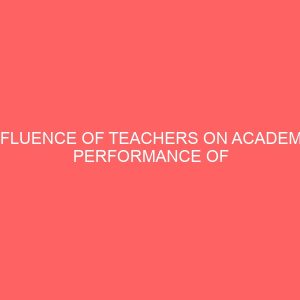
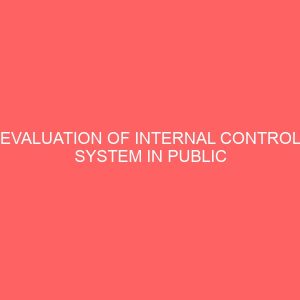
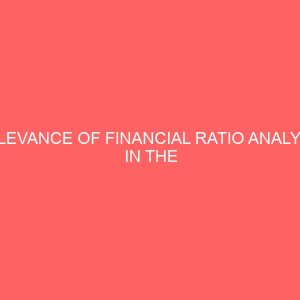

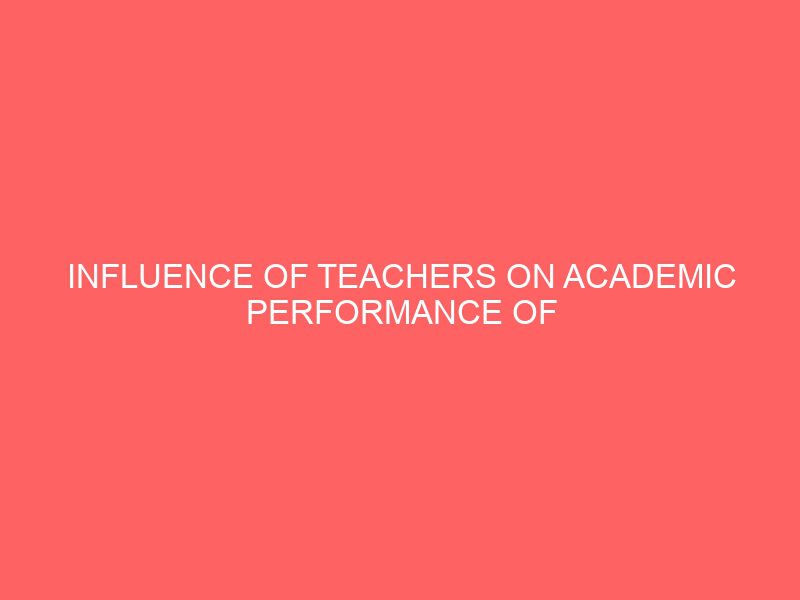
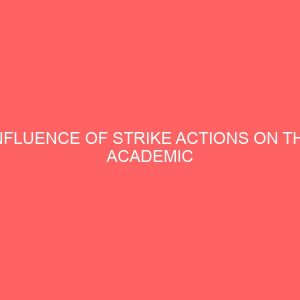
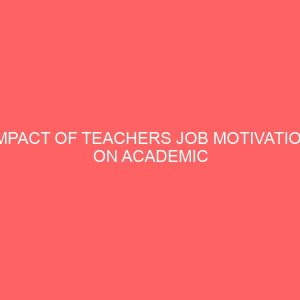
Reviews
There are no reviews yet.